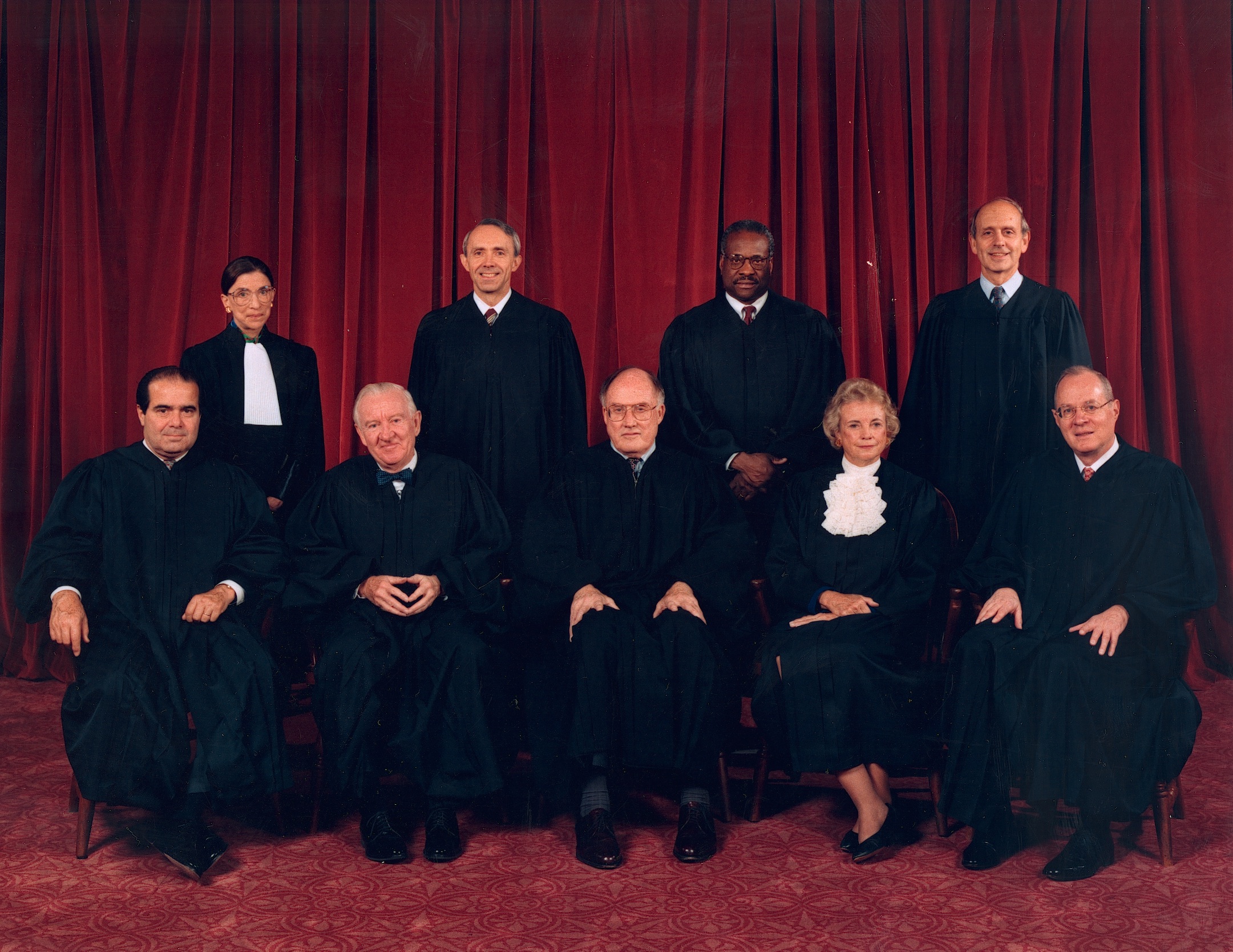The Rehnquist Court, which, though reputed for its conservatism, made both conservative and liberal decisions regarding gay rights.
Boy Scouts and the Freedom of Association
The first of the cases was Boy Scouts of America v. Dale, in which the Boy Scouts attempted to reserve the right to reject membership to Eagle Scout and, as they discovered soon before terminating their relationship with him, gay man and gay rights activist James Dale. The right to do so would hinge on the Scouts' right to freedom of association; if it were upheld, it would allow them to choose not to associate with Dale on the grounds that they did not agree with his practice of homosexuality (particularly because his presence would express to children that the Scouts found homosexuality acceptable.) Here's the breakdown on decisions pertaining to the issue:
1. New Jersey Superior Court: The First Amendment's freedom of expressive association says that the government cannot force the Scouts to accept Dale. More importantly, New Jersey's public accommodation law did not apply because the Scouts were not a sphere for public accommodation (they were a private institution, to which equality in the public sphere did not apply.)
2. Appellate Division: Argues that the Boy Scouts does, through its connections to various public entities as well as the manner of its solicitation, qualify as a sphere for public accommodation to apply. In other words, the Scouts' apparent status as a public institution qualified Dale to return.
3. Supreme Court: affirmed the Appellate Division's decision.
4. The Supreme Court: The opinion handed down by Rehnquist stated that to apply New Jersey's freedom of association law, while it may in the absence of the First Amendment be valid, violate that Amendment's freedom of association clause.
Texas and the Due Process Clause
You may remember Bowers v. Hardwick, the 1986 Burger Court case that, in effect, upheld Georgia sodomy laws that criminalized homosexual sodomy. Nearly 20 years later, a similar situation emerged from Texas in the form of Lawrence v. Texas, another case revolving around homosexual sodomy laws and the right of the state to impose them on two men. The Texas State Court of Appeals stated that the statute did not violate the Due Process Clause, using Bowers to support their position.
The Supreme Court was faced with the same question as in 1986. They had to decide whether or not the different treatments of homosexuals and heterosexuals under these types of laws laws violated the Fourteenth Amendment by giving homosexuals inferior protection or their right to privacy according to the same Amendment's Due Process Clause. The Court held that the couple, of John Gettes Lawrence and Tyron Garner, were free to engage in such sexual conduct and that to disallow such a thing would be to go against the Due Process Clause by violating their right to privacy.

I like how you went into a good amount of detail! Good article!
ReplyDeleteI like how you went into a good amount of detail! Good article!
ReplyDelete